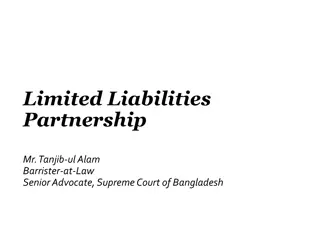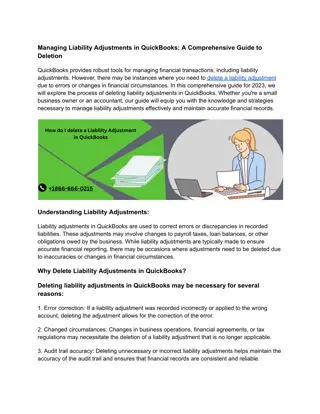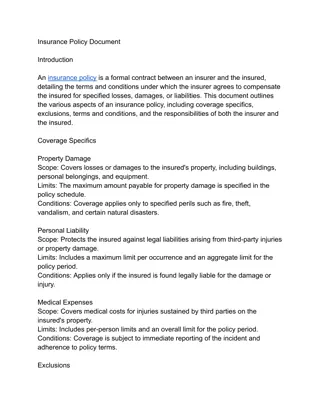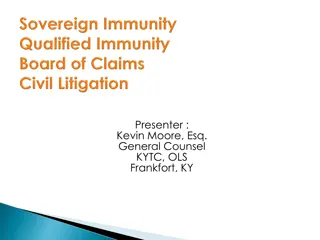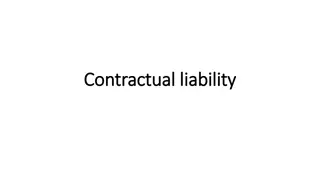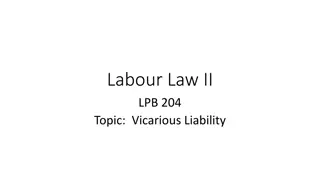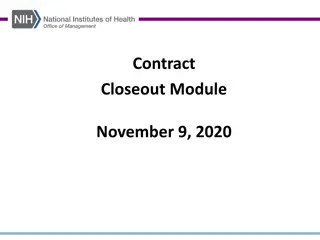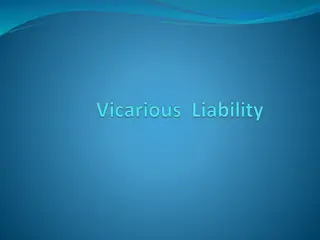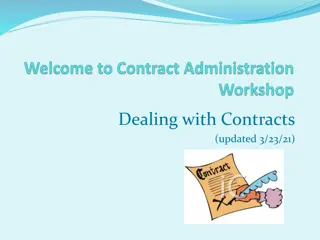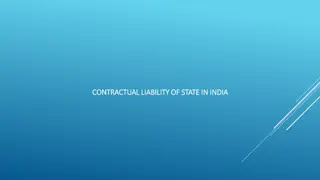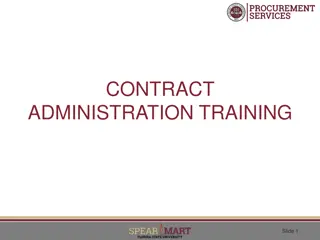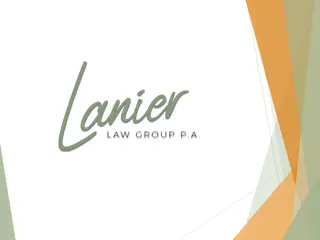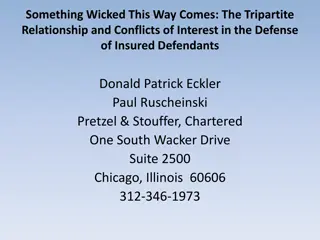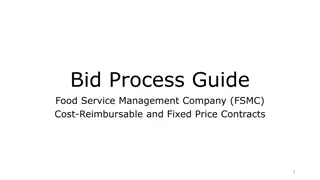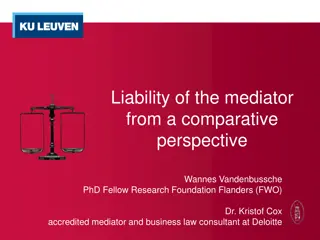Impact of Contract Conditions on Insured Liability
In the insurance realm, contract conditions play a crucial role in shaping the liability of the insured. Brokers have a significant responsibility to advise clients on these conditions as they can have substantial implications on coverage and claims. Understanding how contract conditions can alter an insured's liability is paramount for both clients and brokers to navigate the complex landscape of insurance agreements effectively.
Download Presentation

Please find below an Image/Link to download the presentation.
The content on the website is provided AS IS for your information and personal use only. It may not be sold, licensed, or shared on other websites without obtaining consent from the author.If you encounter any issues during the download, it is possible that the publisher has removed the file from their server.
You are allowed to download the files provided on this website for personal or commercial use, subject to the condition that they are used lawfully. All files are the property of their respective owners.
The content on the website is provided AS IS for your information and personal use only. It may not be sold, licensed, or shared on other websites without obtaining consent from the author.
E N D
Presentation Transcript
How contract conditions can How contract conditions can change the liability of an insured change the liability of an insured and why brokers must advise and why brokers must advise clients on this. clients on this. By Alan Chandler, Chartered Insurer
Alan Chandler, Chartered Insurer Alan Chandler, Chartered Insurer I have trained more than 2,000 individuals to become ACII qualified I have trained over 50% of the individuals in the last 8 years that have gone onto achieve the highest ACII pass in the whole of the UK. I train to a pass rate of more than 96% in all CII qualification levels. Certificate , Diploma and Advanced Diploma. I deliver the Allianz scholarship and academy programmes in both the UK and Ireland, provide the Zurich Ask Alan facility and I have been a Cii examiner. I have trained students who have won national prizes in almost all ACII subjects including Insurance Law (MO5), Liability (M96), Commercial Property and BI (M93), Personal Lines Insurance (P86), Business and Finance (M92), Underwriting Practice (M80), Advanced Underwriting (960), Claims Practice (M85), Advanced Claims (820), Marketing (945), Advanced Broking (930) and Advanced Risk Management (992).
Learning Objectives The presentation will enable the delegates to: Understand how a policyholder can extend their liability by signing certain contracts. Understand how contractual liability may not be covered by the policyholder s liability insurances. Understand how TIA 2015 applies to contract conditions and ensuring that full discussion takes place with the underwriter to avoid losing all policy coverage.
How can a policyholder be sued Tort Statute Contract Let s explore all of these.
Policyholders get sued in civil courts
Contract Law
Contractual Liability exclusion Contract liability is a regular exclusion in PL, Products and other liability policy wordings let s discuss
Forming a Contract. The five essentials in forming a contract: 1. Agreement (offer and unconditional acceptance). Formation of a Contract 2. Intention to create legal relations. 3. Consideration (in simple contracts). 4. Agreement must be in the form required by law (if any). 5. Parties must have capacity to contract.
Terms of a Contract. Terms of a contract can be divided into express and implied terms. Express terms are ? Implied terms are ?
Use of exemption Use of exemption clauses clauses To rely on an exemption clause it must be brought to attention before the contract is formed! Let s consider: Olley v Marlborough Court (1949) ^
Unfair Contract Terms Act 1977 Applies to business to business contracts (consumers are covered under Consumer Rights Act 2015).
Do Courts stop unreasonable terms and conditions Answer occasionally Let s discuss
Consumer Rights Act 2015 Provides that neither an unfair term on a consumer contract nor an unfair consumer notice (e.g. relating to the purchase of a train ticket) is binding on the consumer.
Conditions and Warranties in Contract Warranty is a minor term. Leads to damages not a right to avoid the contract. Condition goes to root of the contract. Can claim damages and avoid the contract.
Warranty or condition, fair or unfair The judge of the day decides.
Hold Harmless agreement A Hold-Harmless Agreement (also known as an Indemnity Agreement) allows one party to protect another party against any future losses or claims that may result from a particular activity.
Limits of liability in contract Two issues here: 1. The policyholder is the sub contractor and signs a contract. 2. The policyholder is the main contractor.
Advise your clients to keep you informed Always say to your clients check your contracts and ensure that you re not stopping insurers being able to recover their loss from the responsible party, or in any other way extending your liability at law . If in doubt refer.
Material Circumstances under the Insurance Act 2015 Extending liability through contract law will in most cases be a material circumstance and could invalidate or reduce coverage. Would a prudent underwriter want to know about the policyholder changing their normal liability through contract. The three things that are taken into account: 1. Would the underwriter have declined the risk. 2. Would the underwriter have imposed more harsh terms. 3. Would the underwriter have charged a greater premium.
Practical rules to follow Let s discuss
Learning Objectives The presentation will enable the delegates to: Understand how a policyholder can extend their liability by signing certain contracts. Understand how contractual liability may not be covered by the policyholder s liability insurances. Understand how the Insurance Act 2015 applies to contract conditions and ensuring that full discussion takes place with the underwriter to avoid losing all policy coverage.


